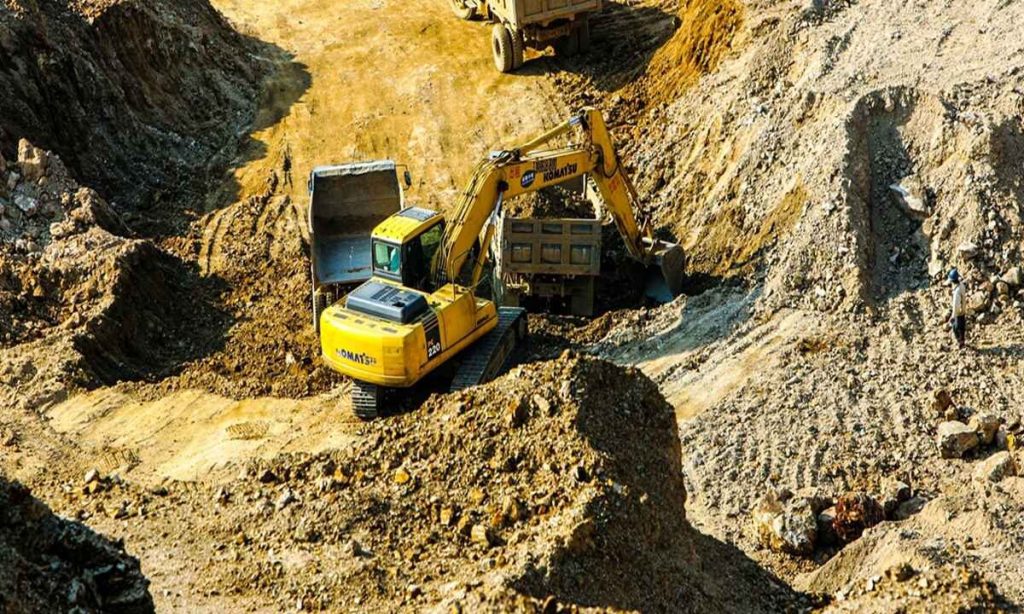China Urges U.S. and Australia to Take “Proactive Role” in Securing Rare Earth Supply Chains
China Urges U.S. and Australia to Take “Proactive Role” in Securing Rare Earth Supply Chains
By
Leah Rosenfeld
Last updated:
October 22, 2025
First Published:
October 22, 2025

Photo: B2B News
Beijing’s Response to the U.S.-Australia Agreement
China on Tuesday reacted to the recently signed U.S.-Australia critical minerals agreement, emphasizing that countries rich in rare earth resources should play a proactive role in maintaining supply chain security and stability.
A spokesperson for China’s Ministry of Foreign Affairs, Guo Jiakun, said the formation of global production and supply chains is shaped by market dynamics and corporate decisions, but stressed that nations with abundant critical minerals must ensure “normal economic and trade cooperation.”
The comments come shortly after U.S. President Donald Trump and Australian Prime Minister Anthony Albanese inked an $8.5 billion framework deal aimed at boosting the supply of rare earths and other strategic minerals outside of China’s dominance.
China’s Export Controls
The announcement follows China’s move earlier this month to tighten export controls on rare earths and related technologies, citing concerns about potential misuse in military and sensitive sectors. These measures have sparked concern among Western automotive and electronics industries, which rely heavily on rare earths for production of electric vehicles, semiconductors, and renewable energy technologies.
China currently dominates the global rare earth market, producing roughly 60% of the world’s supply, making its policies a focal point for international strategic planning.
Global Demand for Rare Earths
The demand for rare earths and other critical minerals is projected to soar in the coming decade as the clean energy transition accelerates. Wind turbines, electric vehicle batteries, solar panels, and advanced electronics all require significant quantities of these minerals, intensifying competition and strategic maneuvering among major economies.
George Cheveley, natural resources portfolio manager at Ninety One, described the U.S.-Australia agreement as a long-awaited but strategic move to bolster supply chains outside of China. He noted, however, that investing in the sector remains complex due to political influence and government subsidies that distort market economics.
Market Reaction
Following the announcement, shares of key Australian rare earths and critical minerals companies experienced mixed movements:
- Lynas Rare Earths, Australia’s largest rare earth producer by market cap, initially rallied but ultimately fell 7.6%.
- Pilbara Minerals, a lithium producer, gained around 2.6%.
- Latrobe Magnesium, Australia’s primary magnesium producer, surged 15%.
- Iluka Resources, a mineral sands miner, slipped 0.1%.
In the U.S., rare earth stocks saw modest declines in premarket trading: Critical Metals -3.8%, USA Rare Earth -5%, MP Materials -1.9%.
Strategic Implications
Analysts say the deal highlights the growing urgency for diversified supply chains outside of China. As global demand for critical minerals grows, partnerships like the U.S.-Australia agreement may serve as a blueprint for other nations seeking to secure long-term access to essential resources.
George Cheveley emphasized that while the agreement is a positive development, the sector remains small and politically complex, requiring careful consideration for investors looking to enter the market.
Popular articles
Subscribe to unlock premium content
The Hidden Economy of Minecraft Server Plugins That Earn Thousands Monthly

Why Classic Ferrari F40s Command Prices Higher Than Some Modern Hypercars

How The Gentle Monster Sunglasses Brand Became a Cult Fashion Phenomenon in Korea

The Hidden Economy of Minecraft Server Plugins That Earn Thousands Monthly

Why Classic Ferrari F40s Command Prices Higher Than Some Modern Hypercars

The Hidden Economy of Minecraft Server Plugins That Earn Thousands Monthly









